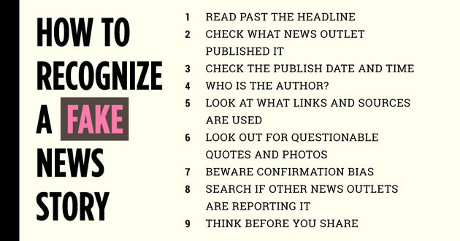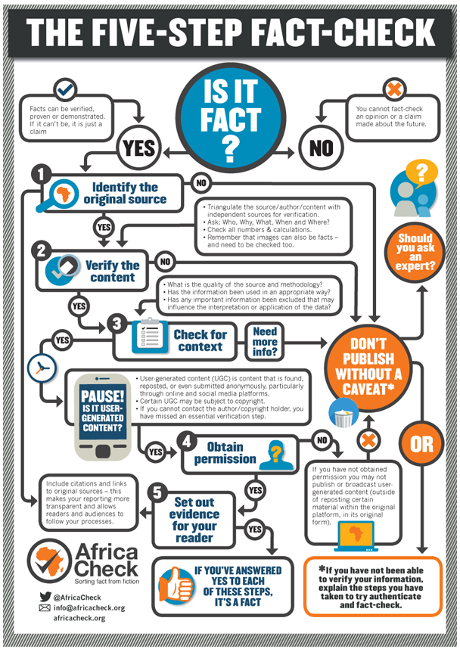‘This Week’ Transcript: Vice President-Elect Mike Pence and Gen. David Petraeus, covers President-elect Donald Trump’s tweet:
In addition to winning the electoral college in a landslide, I won the popular vote if you deduct the millions of people who voted illegally.
That portion of the transcript reads as follows (apologies for the long quote but I think you will agree its all relevant):
…
STEPHANOPOULOS: As I said, President-Elect Trump has been quite active on Twitter, including this week at the beginning of this week, that tweet which I want to show right now, about the popular vote.
And he said, “In addition to winning the electoral college in a landslide, I won the popular vote if you deduct the millions of people who voted illegally.”
That claim is groundless. There’s no evidence to back it up.
Is it responsible for a president-elect to make false statements like that?
PENCE: Well, look, I think four years ago the Pew Research Center found that there were millions of inaccurate voter registrations.
STEPHANOPOULOS: Yes, but the author of this said he — he has said it is not any evidence about what happened in this election or any evidence of voter fraud.
PENCE: I think what, you know, what is — what is historic here is that our president-elect won 30 to 50 states, he won more counties than any candidate on our side since Ronald Reagan.
And the fact that some partisans, who are frustrated with the outcome of the election and disappointed with the outcome of the election, are pointing to the popular vote, I can assure you, if this had been about the popular vote, Donald Trump and I have been campaigning a whole lot more in Illinois and California and New York.
STEPHANOPOULOS: And no one is questioning your victory, certainly I’m not questioning your victory. I’m asking just about that tweet, which I want to say that he said he would have won the popular vote if you deduct the millions of people who voted illegally. That statement is false. Why is it responsible to make it?
PENCE: Well, I think the president-elect wants to call to attention the fact that there has been evidence over many years of…
STEPHANOPOULOS: That’s not what he said.
PENCE: …voter fraud. And expressing that reality Pew Research Center found evidence of that four years ago.
STEPHANPOULOS: That’s not the evidence…
PENCE: …that certainly his right.
But, you know…
STEPHANOPOULOS: It’s his right to make false statements?
PENCE: Well, it’s his right to express his opinion as president-elect of the United States.
I think one of the things that’s refreshing about our president-elect and one of the reasons why I think he made such an incredible connection with people all across this country is because he tells you what’s on his mind.
STEPHANOPOULOS: But why is it refreshing to make false statements?
PENCE: Look, I don’t know that that is a false statement, George, and neither do you. The simple fact is that…
STEPHANOPOULOS: I know there’s no evidence for it.
PENCE: There is evidence, historic evidence from the Pew Research Center of voter fraud that’s taken place. We’re in the process of investigating irregularities in the state of Indiana that were leading up to this election. The fact that voter fraud exists is…
STEPHANPOULOS: But can you provide any evidence — can you provide any evidence to back up that statement?
PENCE; Well, look, I think he’s expressed his opinion on that. And he’s entitled to express his opinion on that. And I think the American people — I think the American people find it very refreshing that they have a president who will tell them what’s on his mind. And I think the connection that he made in the course…
STEPHANOPOULOS: Whether it’s true or not?
PENCE: Well, they’re going to tell them — he’s going to say what he believes to be true and I know that he’s always going to speak in that way as president.
….
Just to be clear, I agree with Stepanopoulos and others who say there is no evidence of millions of illegal votes being cast in the 2016 presidential election.
After reading Stephanopoulos press Pence on this false statement by President-elect Trump, can you recall Stepanopoulos or another other major reporter pressing President Obama on his statements about terrorism, such as:
…
Tonight I want to talk with you about this tragedy, the broader threat of terrorism and how we can keep our country safe. The FBI is still gathering the facts about what happened in San Bernardino, but here’s what we know. The victims were brutally murdered and injured by one of their co-workers and his wife. So far, we have no evidence that the killers were directed by a terrorist organization overseas or that they were part of a broader conspiracy here at home. But it is clear that the two of them had gone down the dark path of radicalization, embracing a perverted interpretation of Islam that calls for war against America and the West. They had stockpiled assault weapons, ammunition, and pipe bombs.
So this was an act of terrorism designed to kill innocent people. Our nation has been at war with terrorists since Al Qaeda killed nearly 3,000 Americans on 9/11. In the process, we’ve hardened our defenses, from airports, to financial centers, to other critical infrastructure. Intelligence and law enforcement agencies have disrupted countless plots here and overseas and worked around the clock to keep us safe.
Our military and counterterrorism professionals have relentlessly pursued terrorist networks overseas, disrupting safe havens in several different countries, killing Osama Bin Laden, and decimating Al Qaeda’s leadership.
Over the last few years, however, the terrorist threat has evolved into a new phase. As we’ve become better at preventing complex multifaceted attacks like 9/11, terrorists turn to less complicated acts of violence like the mass shootings that are all too common in our society. It is this type of attack that we saw at Fort Hood in 2009, in Chattanooga earlier this year, and now in San Bernardino.
And as groups like ISIL grew stronger amidst the chaos of war in Iraq and then Syria, and as the Internet erases the distance between countries, we see growing efforts by terrorists to poison the minds of people like the Boston Marathon bombers and the San Bernardino killers.
For seven years, I’ve confronted this evolving threat each and every morning in my intelligence briefing, and since the day I took this office, I have authorized U.S. forces to take out terrorists abroad precisely because I know how real the danger is.
… Here’s what Obama said in his Sunday night address: An annotated transcript
Really? “…because I know how real the danger is.”
Do you recall anyone pressing President Obama on his claims about the danger of terrorism?
If you ever get to pose such a question to President Obama, remind him that 685 American die every day from medial errors, 44,0000 Americans die every 6 months due to excessive alcohol consumption, and that 430 Americans died between 2000 and 2013 due to falling furniture.
Can you think of a single instance when Obama’s flights of fancy about terrorism were challenged as Stephanopoulos did Trump’s delusion about illegal voters?
The media can and should challenge such flights of fancy.
At the same time, they should challenge those favored by other politicians, their editors, fellow journalists and advertisers.
PS: The medical error article: Medical error—the third leading cause of death in the US, BMJ 2016; 353 doi: http://dx.doi.org/10.1136/bmj.i2139 (Published 03 May 2016) Cite this as: BMJ 2016;353:i2139 (The Guardian article, my source, didn’t include a link to the original article.)



